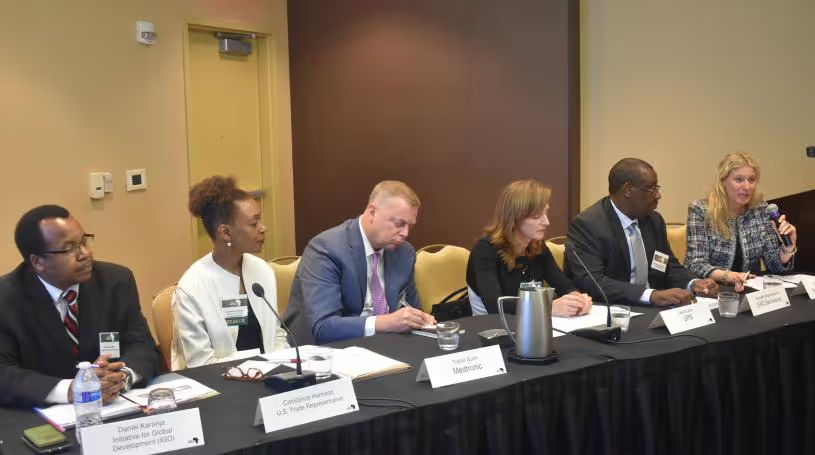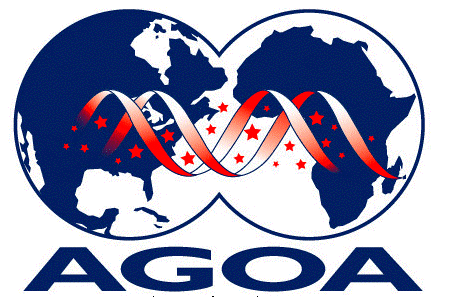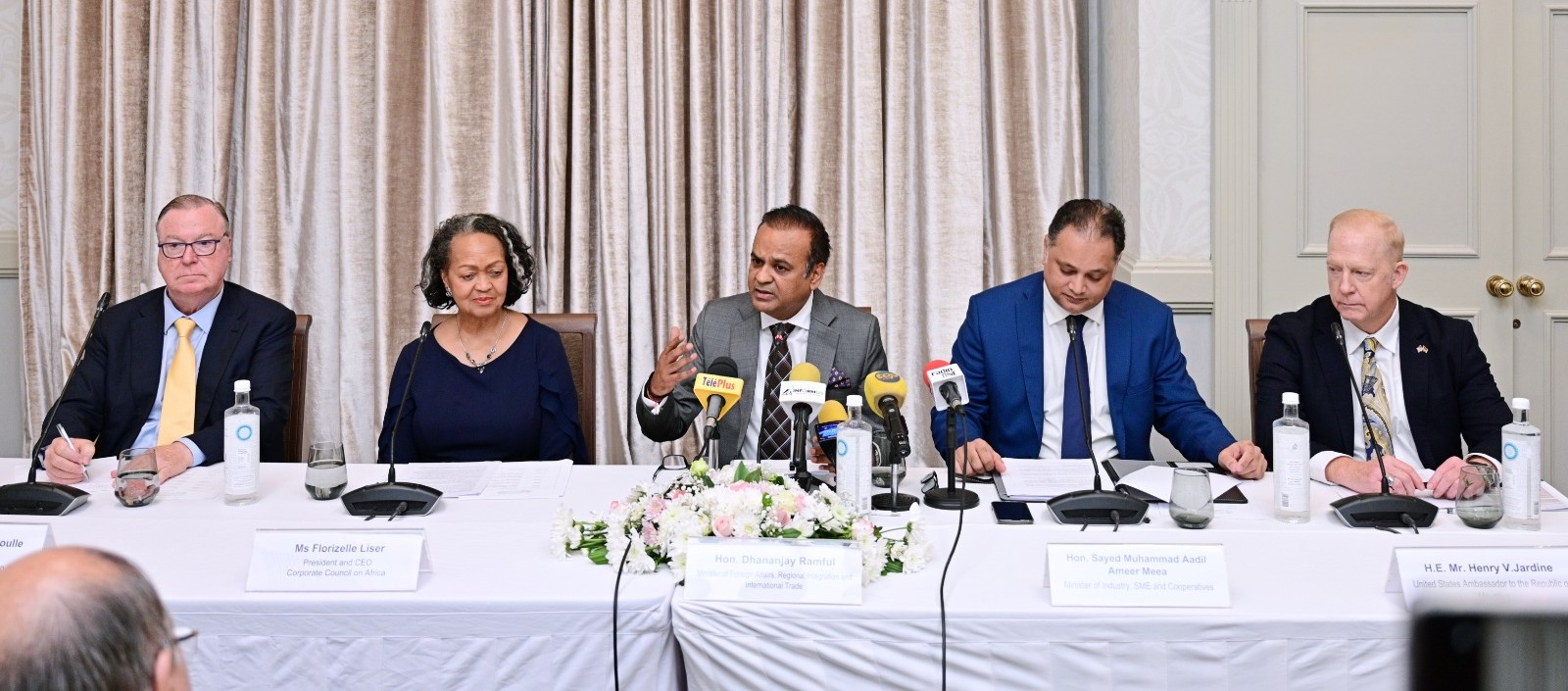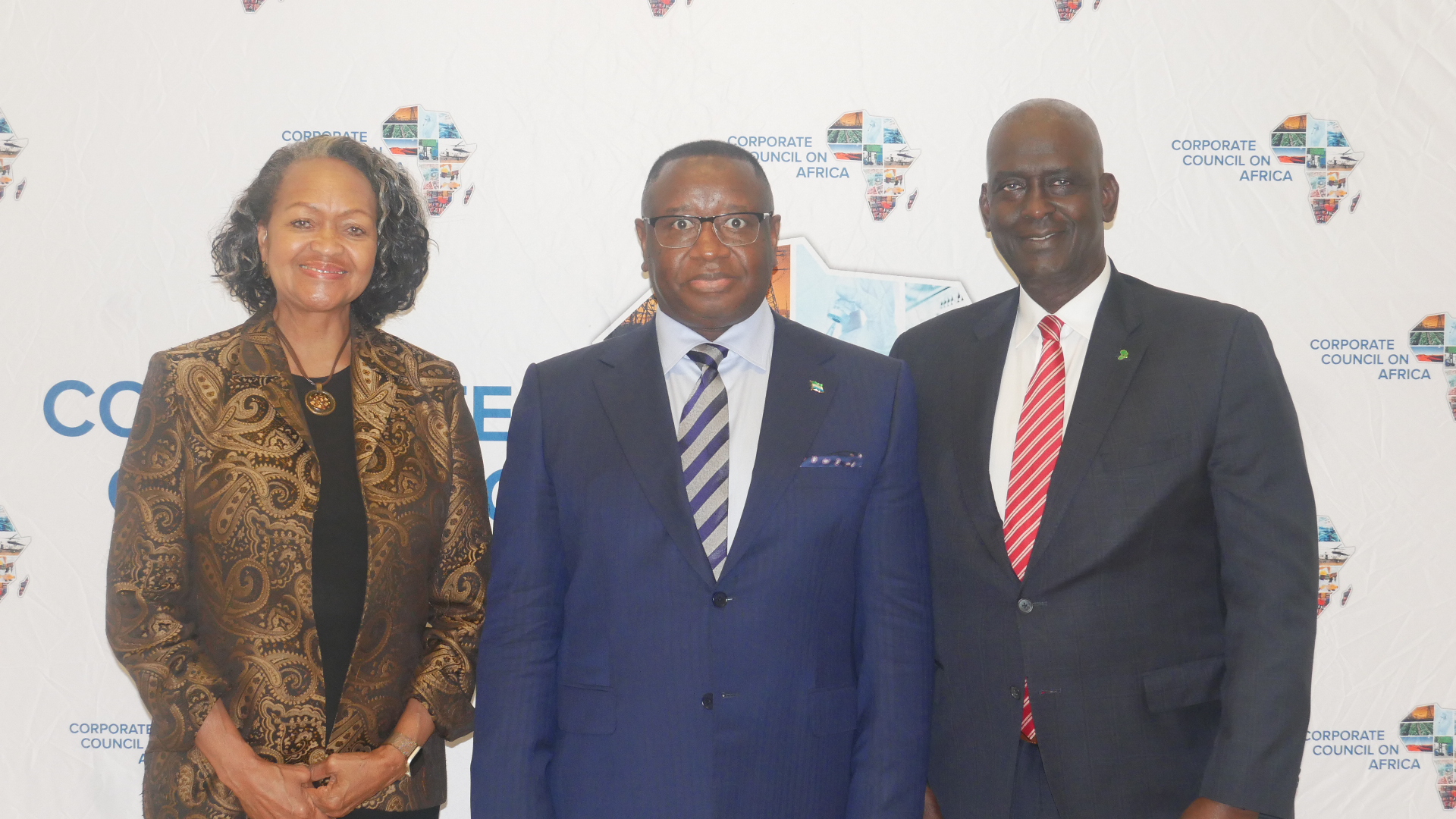AGOA Private Sector Forum Panel II: The Future of U.S.-Africa Trade and Investment

Katrin Kuhlmann, President of New Markets Lab, introduced and moderated the panel, which included: Trevor Gunn, Vice President, International Relations, Medtronic; Laura Lane, President, Global Affairs, UPS; Daniel Karanja, Vice President, Initiative for Global Development; Constance Hamilton, Assistant US Trade Representative, USTR; Kenneth Bagamuhunda, Director General of Customs and Trade, EAC Secretariat.The signing of the AfCFTA in March created a buzz that hasn’t been seen in several years, due to the fact that the agreement’s goals on trade and investment are beginning to make more real the significant potential for regional integration that has been developing for several years. Panelists noted that while countries are working on their own strategies, it’s important not to overlook the importance of also developing regional trade strategies,as cross-border value chains offer significant potential to increase value added for manufacturing and exports. When AGOA was initially offered, it was expected to lead to backward trade linkages that would have promoted these kinds of value chains. The question confronting African Governments today is whether to wait until the expiry of AGOA before engaging with the U.S. on the future of trade and investment ties, or to begin talking now.One participant argued that African countries’ experience with the EU Economic Partnership Agreements suggests beginning discussions as soon as possible. It was also suggested that African countries can do a lot to increase awareness of AGOA’s provisions, while also making it easier for their companies to invest and expand by addressing problems in the World Bank’s Ease of Doing Business surveys. Another participant noted that some African countries, like Ethiopia and Kenya, are already seizing the moment, having announced important domestic reforms designed to boost trade and investment, while other governments, like Ghana and Ivory Coast, have made welcome political reforms.As one member of the President’s Advisory Council on Doing Business in Africa noted, African companies are readier than ever to do business with American partners. Bearing this out, U.S. companies signed more than one billion dollars in deals during the recent PAC-DBIA trip. There was a general sense that companies want to support Africa’s efforts at deepening integration, both through regional agreements and the continental free trade agreement.USTR briefed the panel on current U.S. Government thinking, noting that the agency had just published its latest report on U.S. trade with Africa, which shows a 6% increase in overall trade, and ever-greater diversification of goods. USTR hailed the AfCFTA as a “tremendous accomplishment,” and said both the U.S. Government and U.S. companies want to be good partners. The goal is to translate the excitement around AfCFTA into getting to the next stage of the U.S. relationship with Africa, beyond AGOA. It was suggested that perhaps it’s time to explore concluding an FTA with one country that could then serve as a model for other countries. While USTR is ready for exploratory talks, the U.S. is not forcing this on any country. Several participants suggested that in many ways, it will be up to one country or one sector to experiment and try out ways to create better opportunities. As soon as one country or sector finds the right formula, others will quickly follow. While the panel concluded with enormous optimism, there was also agreement that there is not much time left to chart a shared future. The sooner the process starts, the better.



